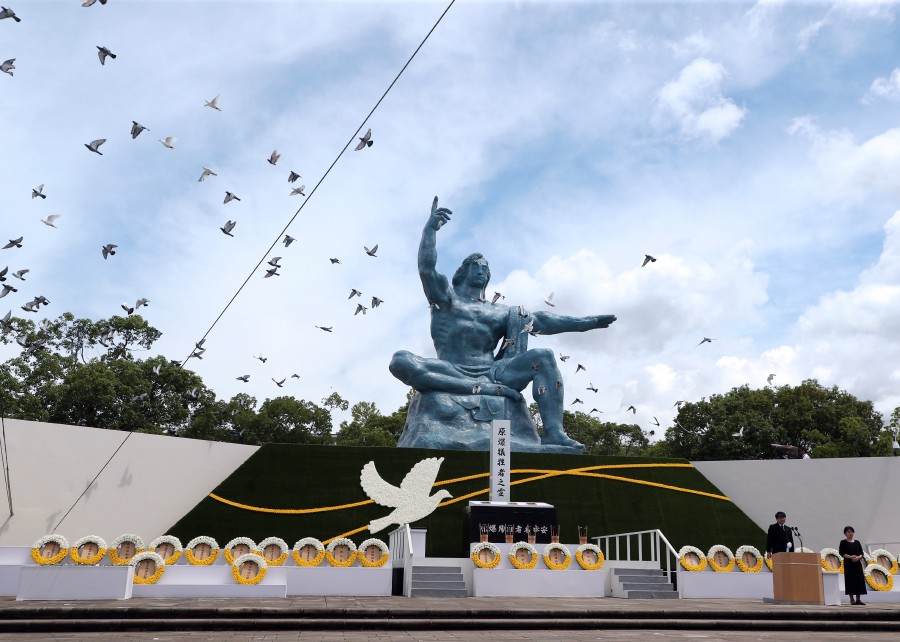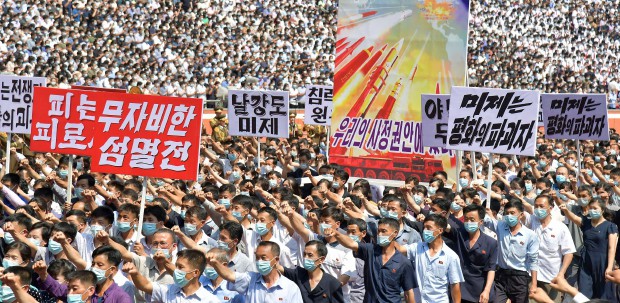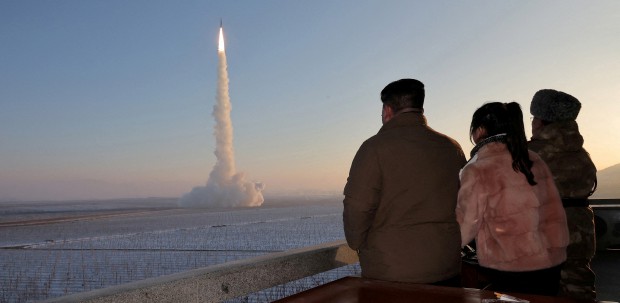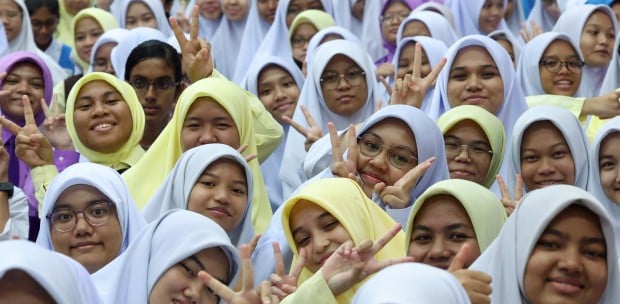Considering the war in Ukraine, the complexity of China-United States relations, and the threat of terrorism, the outlook for world security looks worrisome.
What's more worrying is the presence of nuclear weapons with no legal guarantee not to be detonated.
They are weapons of mass destruction (WMD). Experts believe a single detonation, intentionally or accidentally, "can end the lives of millions of people immediately".
There are nearly 13,000 nuclear weapons stored around the world. Imagine what will happen if more than one nuclear weapon were to go off.
Only a few states have nuclear weapons, the most prominent are the US, Russia, France, the United Kingdom and China.
The Nuclear Non-Proliferation Treaty (NPT) recognises them as "nuclear-weapon states" (NWS). Article VI of the NPT obligates the NWS not to develop and maintain nuclear weapons in perpetuity, yet none of them has fulfilled this obligation.
Israel, India, Pakistan and North Korea also possess nuclear weapons. However, they are not officially recognised as NWS by the NPT. They are also not parties to the NPT and thus are not bound by the obligations it creates. The risks posed by nuclear weapons to the human race and other living organisms are serious. Yet, states in possession of them have made no specific, legally binding commitment to disarm.
As United Nations Secretary-General Antonio Guterres warned at the opening of the NPT Review Conference in August this year: "Today, humanity is only a misunderstanding, a miscalculation, away from nuclear annihilation."
Experts warn that when a nuclear weapon is detonated, there will be catastrophic humanitarian consequences, including massive deaths, widespread displacement, and long-term damage to human health, the environment, infrastructure and socio-economy.
When a hundred nuclear weapons are detonated against urban targets, in addition to releasing radiation around the world, it will lead to a cooling of the atmosphere, a shortening of the growing season, food shortages and global famine.
Imagine what kind of devastation would come upon the Earth if thousands were detonated. Despite this, and with complete disregard for the UN's call for nuclear disarmament and the security of countries that do not have such weapons, countries with nuclear arsenals continue to maintain them, believing, falsely, that the weapons serve their security and deter potential aggressors.
The bitter truth is that their presence poses serious risks to international peace and security, let alone their detonation.
Nuclear accidents have happened in the past, Chernobyl in 1996 or Fukushima in 2011 are examples. God forbid, if such weapons come into the hands of terrorists, who will not hesitate to detonate them.
Despite all these risks, the NWS has yet to agree to disarm. It seems these states have not learned from history.
The 1945 nuclear detonations in Hiroshima and Nagasaki completely destroyed these cities.
Nuclear arsenals are now more lethal and destructive.
One detonation "can destroy a whole city, potentially killing millions, and jeopardising the natural environment and lives of future generations through its long-term catastrophic effects".
Last year, the Treaty on the Prohibition of Nuclear Weapons (TPNW), which bans nuclear weapons, was adopted, but no country possessing such weapons has ratified it. Although several NWS recently pledged that "a nuclear war cannot be won and should never be fought", this is only a pledge. Do these states not realise that if they use these weapons, they will suffer the same consequences as enemies and neutral states?
Civil society, academics and all concerned groups should raise awareness about the dangers of nuclear weapons and advocate for their annihilation before they annihilate us.
The TPNW remains only "a bargain between states without nuclear weapons, who pledge not to acquire such weapons".
Given the escalation of the Russia-Ukraine war, especially President Vladimir Putin's order on Feb 27 putting Russia's nuclear forces on special combat mode and US President Joe Biden's recent statements that the US would defend Taiwan in the event of a Chinese attack, the NWS should heed Guterres' warning that "the prospect of nuclear conflict, once unthinkable, is now back within the realm of possibility".
They should also heed the warning of UN High Representative for Disarmament Affairs Izumi Nakamitsu about the possible danger of "mushroom clouds on the battlefield".
To prevent such a possibility from becoming a reality, nuclear-weapon states must ratify the TPNW and commit to a total nuclear ban.
The writer is a professor at the Ahmad Ibrahim Kulliyyah of Laws, International Islamic University Malaysia
The views expressed in this article are the author's own and do not necessarily reflect those of the New Straits Times





